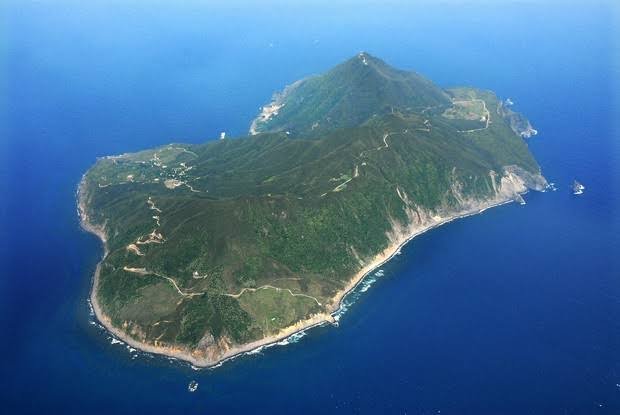More than 900 earthquakes have rattled Japan’s Tokara Islands since late June, sending tremors of fear far beyond the region. While most scientists are calling it a localized tectonic event, a different group of people—particularly on social media—are looking for answers elsewhere. Their question?
“Was this what Baba Vanga predicted?”
The resurfacing of such theories, particularly when fear is high, is not unusual. But before panic overshadows preparedness, let’s examine what’s really happening in Japan—and why it’s important to stay grounded in science, not speculation.
The Reality on the Ground: Tokara’s Never-Ending Quakes

Between June 21 and July 2, Japan’s southern Tokara island chain experienced over 900 tremors, with the largest at magnitude 5.5. In just 24 hours on June 23, over 180 earthquakes were recorded. These tremors have kept residents awake, anxious, and alert, even though major damage has been avoided.
“It feels like it’s always shaking,” said a resident to local media. “We’re not sleeping much anymore.”
Many residents are considering temporary evacuation as the Japan Meteorological Agency (JMA) warns that the situation remains “unpredictable.”
What’s Causing It?
The islands sit on the Ring of Fire, a hotspot for seismic activity where tectonic plates frequently grind and shift. Experts explain this event as a seismic swarm — a series of many small quakes without a single large mainshock.
A similar swarm occurred in 2021 and 2023—but never at this scale. Some researchers speculate underwater volcanic activity or crustal stress could be contributing.
So Why Is Baba Vanga Trending?
In parallel with the scientific updates, a different narrative is trending across platforms like X (formerly Twitter), YouTube, and Reddit.
Baba Vanga, a blind Bulgarian mystic who passed away in 1996, is often credited with vague predictions that people retroactively interpret as warnings. For 2025, some say she foresaw a major earthquake in Asia and natural disasters linked to the sea.
Add to that:
- Viral posts claiming manga artist Ryo Tatsuki predicted a July 5 “megaquake.”
- YouTube videos with ominous background music and “Wanga’s 2025 prophecy coming true?” titles.
- Panic among tourists canceling summer visits to Japan.
While it’s understandable to seek meaning in chaos, there is no scientific evidence that these predictions hold weight.
Separating Fact from Fear
Here’s the difference between panic and preparation:
| Common Fear | Reality Check |
|---|---|
| “Baba Vanga predicted this exact event.” | No direct quotes or dates exist linking her to Tokara or July 2025. |
| “Ryo Tatsuki’s manga forecasted July 5 as a doomsday.” | Old fiction has been taken out of context. No scientific basis exists. |
| “A megaquake is now imminent.” | Seismic swarms do not always lead to large earthquakes, according to JMA. |
What Experts Are Actually Saying
Japan’s seismic monitoring systems are among the best in the world. According to JMA:
- These quakes are being tracked in real time.
- No signs currently indicate that a catastrophic quake is about to strike.
- However, residents should remain prepared, not panicked.
This is not the first time Japan has experienced long quake swarms—and it won’t be the last.
Tourism, Anxiety, and the Viral Fear Loop
This event has affected Japan’s tourism industry as travelers begin canceling trips, especially to southern islands. Misinformation travels fast—especially when mixed with pseudoscience and sensational predictions.
That’s why bloggers, journalists, and content creators have a responsibility to inform, not incite.
Let’s be clear:
- Predictions from mystics cannot replace scientific earthquake monitoring.
- No single person—living or deceased—can forecast natural disasters with certainty.
- Preparing with fact-based tools (like Japan’s Earthquake Early Warning System) saves lives.
A Rational Way Forward
If you live in or plan to visit earthquake-prone areas:
- Keep emergency kits ready.
- Know the difference between swarms and megaquakes.
- Follow only official channels like JMA or local disaster departments.
- Take breaks from constant doomscrolling—it increases anxiety, not safety.
Final Thoughts
The Tokara Islands are experiencing a rare and unsettling event. But panic based on unverified predictions is not the solution.
It’s okay to be curious. But it’s better to be informed.
As this story develops, it’s essential to trust data, not doom. And while Baba Vanga and Ryo Tatsuki might continue trending, remember—science isn’t in the business of prophecy. It’s in the business of preparation.
More Stories
Amazon Great Freedom Festival 2025: What to Grab and What to Skip
Flipkart Freedom Sale 2025 – It’s Live Now: Your Full Deal Breakdown
Mohammed Siraj: The Silent Storm Behind India’s Gritty Fightback